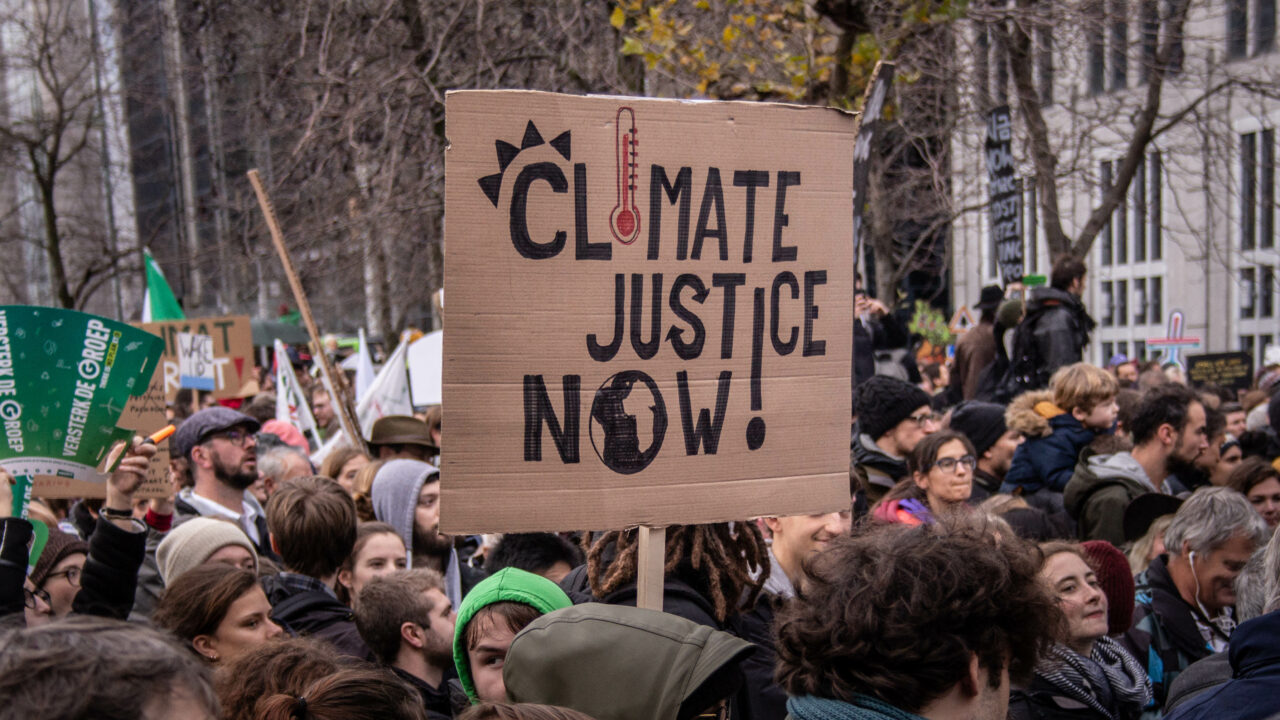Paving Paradise: Environmental activism in music

Music has long been used as a didactic medium and a form of protest. Across a range of eras and causes, music has often served as a way to react against the status quo and shed light on subjects of public discontent. One of the recurring subjects of musical protest in the last 50 years has been environmentalism.
The first environmentalist album ‘God Bless The Grass’ was released back in 1966, by Pete Seeger. “These values cannot be preserved if logging, highways, hot dog stands, and motels take over” says Seeger in the original liner notes of the album. He was an activist most of his life, and used his music to share his message with the world. He inspired many other artists to do so too, and remained active even in his nineties, attending the 2013 Farm Aid.
One of the most well-known early songs about the environment is ‘Big Yellow Taxi’ (1970) by Joni Mitchell.
“Hey farmer, farmer, put away the DDT now. Give me spots on my apples, but leave me the birds and the bees, please” she sings. When asked about the song in an interview with The Los Angeles Times, she explained what led her to write the song: “I threw back the curtains and saw these beautiful green mountains in the distance. Then, I looked down and there was a parking lot as far as the eye could see, and it broke my heart… this blight on paradise.”
After Seeger and Mitchell, many more songs with an eco-friendly focus were written, with ‘If A Tree Falls’ by Bruce Cockburn (1989), and ‘Earth Song’ by Michael Jackson (1995) being prime examples.
However, transmitting the message to take care of the environment goes further than just the lyrics. In 2007 a series of concerts took place simultaneously in South Africa, the U.S., Australia, Japan, China, Brazil, the U.K., Germany, Italy and Antarctica (!) under the name ‘Live Earth’. Its goal was to make music fans and the wider public more aware of environmental issues and the DVD proceeds went to the Alliance for Climate Protection. Many more concerts about this topic followed, spreading the message to people all over the world. However, they often get criticised for the ecological footprint of the events themselves.
It might be a slightly less guilt-free way to tackle the subject than releasing a protest song, but the live music industry is finding ways to make events more sustainable. More and more festivals provide reusable cups, compostable cutlery and CO2 offsetting in an attempt to reduce their carbon footprint. Festivals can also be the perfect test-environment for sustainable solutions, according to Sjoerd Bootsma, founder of Welcome To The Village Festival. He explains that festivals are like a temporary village. “If you can make that village sustainable, it should be applicable to the ‘real world’ too.”
The development of social media in the 21st Century has provided the means to reach people all over the world from our bedroom, allowing even more artists to share their feelings on the subject. In 2008 a group of young people from Australia were sick of seeing damage to the environment and decided to write their own protest song ‘Protect The World’ during a hip-hop workshop and released the finished product on YouTube. In 2015 Prince Ea uploaded his video titled ‘Sorry’, a six minute long musical apology to future generations for the damage caused. Meanwhile, in 2017 Netflix collaborated with Kristen Bell to create the song ‘Tell Me How Long’, the theme song for the documentary series Chasing Coral illustrating the ways in which human behaviour is damaging the delicate ecological balance of coral reefs.
“Tell me what do I do, now we see what we’ve done” she sings.
In 2019, the subject of environmentalism is more relevant than ever. With protests all over the world and international climate summits between political leaders, it is firmly in the public consciousness.
Earlier this year comedy rapper Lil Dicky released ‘Earth’ which featured a whole host of celebrity guests, from Ariana Grande as an animated zebra to Ed Sheeran as a koala, espousing a message about unity and biodiversity and donating the proceeds to an environmental charity. A very different collaboration between The 1975 and environmental activist Greta Thunberg came out in July, with the band providing her speech with an atmospheric soundscape accompaniment. Despite not usually working with guest stars, they made an exception for Greta with the hope of spreading her message to a wider audience. All proceeds went to activist group Extinction Rebellion, whose key aim is to increase pressure on governments to take action and declare a climate emergency.
On an industry wide level, the organisation Music Declares Emergency was set up this year as a collective of companies and individuals within the music industry standing together to promote more environmentally friendly practices, as well as lobbying for governmental action. A key part of their manifesto is a belief in “the power of music to promote the cultural change needed to create a better future”.
As John Luther Adams (activist & composer) said:
“Where the eye divides, the ear connects.“
Listen to our Paving Paradise playlist here:


